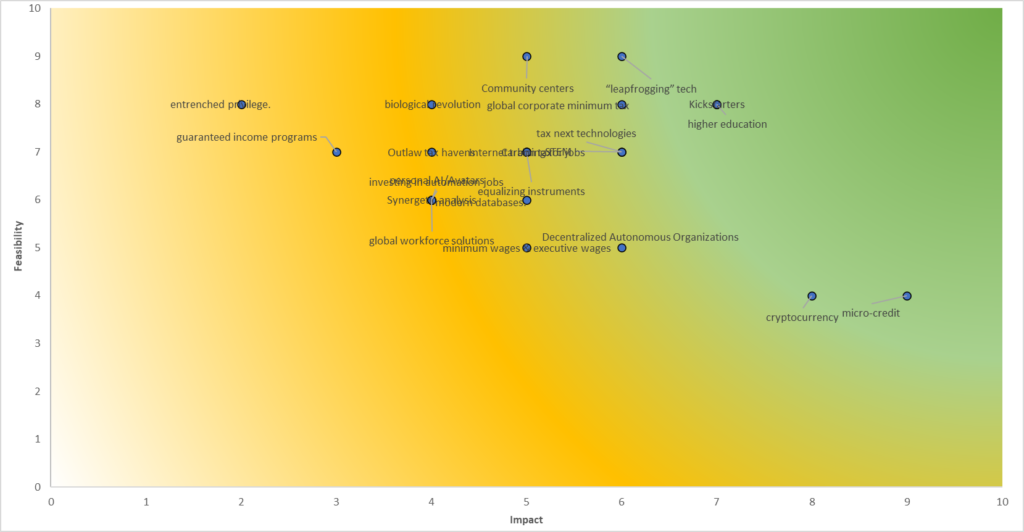Oct 5, 2023
Actions for Wealth Inequality by the Millenium Project, Ranked
Posted by Arav Jain in categories: economics, futurism
When working at the Millenium Project, a global think tank that publishes reports surrounding global problems, I decided to improve the way reports were presented by ranking the actions provided by the organization to adress the problem. I focused on the 23 actions in global challenge 7 (Rich-poor gap) and created a system focusing on two aspects: feasibility and impact.
Assigning scores from 1–10 for each of these aspects made sense as an action needs to be both implemented and impactful for it to adress the problem. By researching to assign these scores and multiplying them, I could get an overall idea of where an action would compare to another one. Below is a graph summarizing my results, followed by the details behind each ranking.

1. Make higher education more easily available to all.
Feasibility: 7
Rates of higher education have doubled worldwide 19 to 38 percent over the last two decades, indicating that increased access is very possible. Although the process of making education truly available will take decades, governments clearly recognize the need for it and are taking steps towards achieving it, with education becoming a larger percent of GDP for most countries.
Impact: 8
Higher education has been known to increase earnings significantly, thereby reducing poverty. Additionally, education has been known to have various benefits towards poverty like reducing food insecurity and standards of health.










